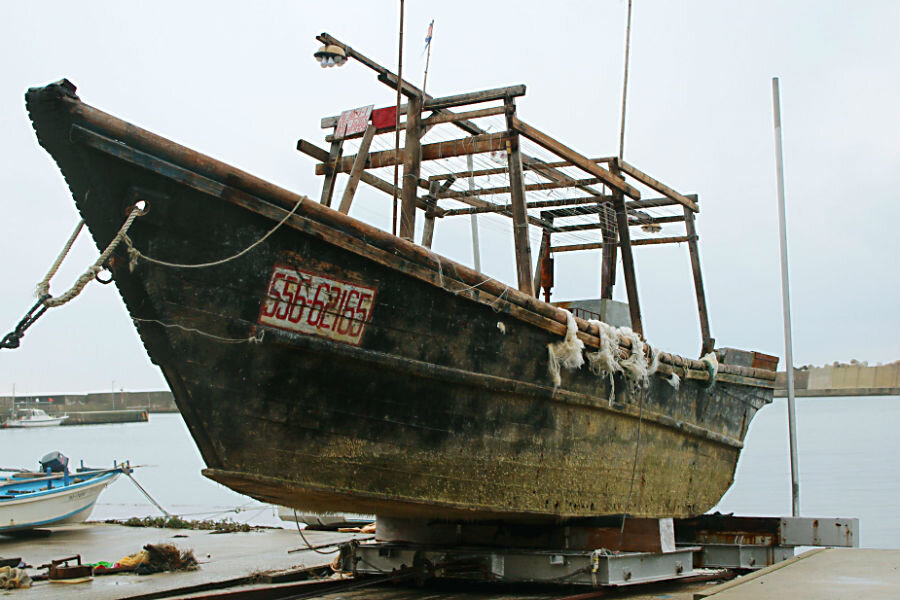Mysterious 'ghost' ships drift into Japanese waters
| Tokyo
Japanese authorities are investigating nearly a dozen wooden boats carrying decomposing bodies found drifting off the northwestern coast over the past month.
Coast Guard officials said Tuesday they have found at least 11 shoddy boats carrying the bodies of unknown nationality since late October. They have also found fishing equipment and nets on board and signs written in Korean, suggesting they came from North Korea.
Officials say dozens of wrecked boats drift toward Japan's northwestern coasts facing the Sea of Japan every year.
This year, officials have found 34 mystery boats so far, including the 11 found between late October and November. Last year, Japan found 65 of them, and 80 more in 2013, according to the Coast Guard.
Coast Guard spokesman Yoshiaki Hiroto said the boats are apparently from the Korean Peninsula, though he declined to identify the country. He said the number of drifting mystery boats tends to rise during the fall and winter season because of the wind from the northwest. Simple wooden boats like those are not used in Japan, he added.
The South China Morning post reports:
Japanese authorities are working on the assumption that the boats are fishing vessels that strayed too far from the North Korean coast and either ran out of fuel or suffered some sort of engine malfunction before being taken by the currents to Japan.
Not anticipating an extended period at sea, the crews probably perished from exposure to the elements or from a lack of food and water.
An alternative suggestion would be that at least some of the boats were attempting to get defectors out of North Korea.
In September 2011, nine people were rescued off the coast of northern Japan after a five-day voyage in a small boat. The three men, three women and three young children told the coastguard they were from the same family and had been attempting to travel to South Korea to seek asylum.
On Nov. 20, officials found four bodies in two capsized boats off the coast of Ishikawa prefecture. Two days later, seven bodies were found inside another wooden boat off nearby Fukui prefecture.
Coast Guard said officials autopsied some of them but could not determine their nationality or cause of death.





